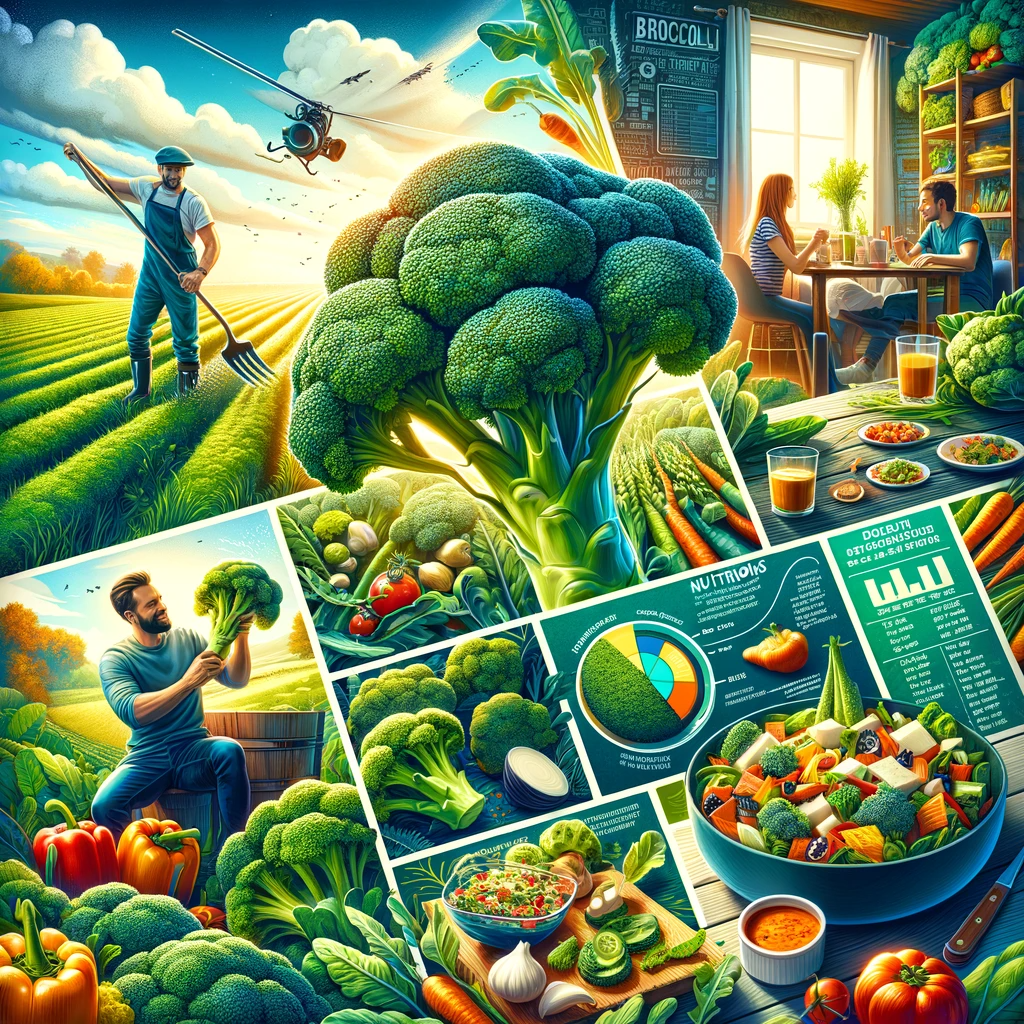In a world where environmental concerns are becoming increasingly prominent, making sustainable choices in our daily lives is more crucial than ever before. One such choice is incorporating broccoli into our diets. Broccoli is not only a versatile and nutritious vegetable but also a champion of sustainability. In this article, we’ll explore the many ways broccoli contributes to a greener planet and why it should be a staple in your meals.
Why Broccoli?
1. Nutrient-Rich Superfood
Broccoli is often hailed as a superfood due to its rich nutrient profile. Packed with vitamins, minerals, and antioxidants, it provides essential nutrients that promote overall health. It contains vitamin C, vitamin K, fiber, and a variety of other essential vitamins and minerals that are vital for our well-being.
2. Low Environmental Impact
One of the primary reasons broccoli is a sustainable choice is its low environmental impact. Compared to many other crops, broccoli requires fewer resources such as water and fertilizer to grow. It also has a relatively short growing period, reducing the overall energy and resources needed for cultivation.
Sustainability Benefits of Broccoli
1. Water Efficiency
Broccoli is known for its efficient use of water. It requires significantly less water compared to water-intensive crops like rice or almonds. With water scarcity becoming a global concern, choosing water-efficient foods like broccoli can help alleviate this issue.
2. Reduced Greenhouse Gas Emissions
The carbon footprint of broccoli is relatively low. It produces fewer greenhouse gas emissions compared to livestock farming, making it a sustainable choice for those concerned about climate change.
3. Minimal Pesticide Use
Broccoli is less prone to pests and diseases compared to some other crops, reducing the need for pesticides. This not only benefits the environment but also ensures a safer and healthier product for consumers.
Local Farming and Seasonal Eating
1. Support Local Agriculture
By choosing locally grown broccoli, you support local farmers and reduce the carbon footprint associated with long-distance transportation. Local farming promotes a healthier regional economy and strengthens community ties.
2. Seasonal Availability
Eating broccoli in season is not only tastier but also more sustainable. It reduces the need for energy-intensive methods like refrigeration and transportation, as the vegetable is readily available and fresh during its peak season.
Reducing Food Waste
1. Versatile Usage
Broccoli is a versatile ingredient that can be used in a wide variety of dishes, from salads and stir-fries to soups and casseroles. This versatility makes it less likely to go to waste in your kitchen.
2. Zero-Waste Cooking
You can use the entire broccoli, including the stems and leaves, reducing food waste. The stems can be sliced or grated into salads, and the leaves can be used in recipes just like other leafy greens.
Conclusion: A Green Choice for a Better Future
Incorporating broccoli into your diet is not just a healthy choice for you; it’s also a responsible choice for the planet. Its low environmental impact, water efficiency, and reduced carbon footprint make it a sustainable superstar in the world of food choices. By supporting local agriculture and minimizing food waste, you can further enhance the sustainability of your broccoli consumption.
So, next time you’re planning your meals, consider adding broccoli to your plate. It’s a simple yet impactful way to contribute to a better and more sustainable future for our planet. Make the green choice for a greener planet – choose broccoli.
